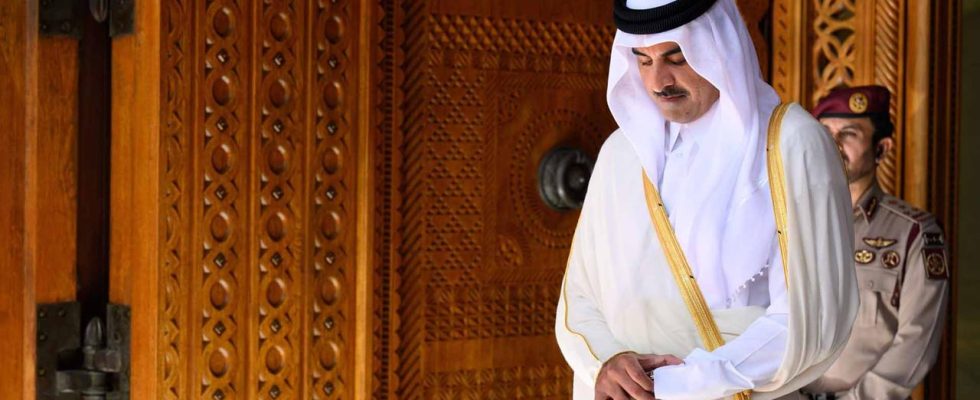Qatar has established itself as a mediator in the Middle East conflict. But the negotiations are now stalling and the emirate is expressing unusually clear criticism of Hamas. Will there be a break with the militant Islamists?
Qatar doubts its role. Just a few days after Hamas’ terrorist attack on Israel and the outbreak of fighting in the Gaza Strip, the small emirate had taken over mediation between the warring parties. The release of some hostages was arranged by Qatar. The opening of the border to Egypt for foreigners and injured persons was mediated by Qatar, among others.
At the beginning, the Qatari chief negotiator Mohammed al-Khulaifi did not mince his words. Qatar’s goal is for all civilian hostages to be released – the emirate is working on this “with all our strength and all our possibilities.”
But now, more than six months later, the negotiations have stalled and frustration is spreading across the Gulf. Prime Minister Mohammed bin Abdulrahman al-Thani, who is also the emirate’s foreign minister, said a few days ago: “Unfortunately, we have seen that this mediation has been abused and used to further its own political interests, which has prompted the State of Qatar to undertake a comprehensive reassessment of it role.”
Annoyed by the role of “bogeyman”
Qatar is annoyed. Instead of media-effective successes, there are arguments and criticism from all sides. Israel is publicly complaining about Qatar’s closeness to Hamas, taunts are coming from the USA, and now the rulers in the Gulf are apparently tired of being the bogeyman.
Foreign Ministry spokesman Majed al-Ansari said they were “deeply frustrated by such statements.” Qatar is therefore currently readjusting its role as a mediator.
Hamas has become a “burden.”
Qatar actually offers itself as a mediator like no other country: The emirate has contacts with Israel, but above all maintains good relations with the radical Islamist Hamas. Since 2012, Hamas has even had its politburo in Doha. But that could soon be over.
Political scientist Mohammed Elmasry on the al-Hadath channel considers the presence of the Hamas leadership in Qatar to be a burden for the emirate. He refers to criticism from Israel and the USA. Qatar is under pressure and fears negative consequences for its interests.
Does Hamas have to move?
According to reports, Hamas is already looking for a place where it could alternatively settle: Oman is being discussed, Egypt – or Turkey. Turkey in particular currently seems to be actively bringing itself into play as a possible new mediator. So it was probably no coincidence that al-Thani vented his frustration while Turkish Foreign Minister Hakan Fidan was standing next to him at the press conference.
Turkey and Qatar have been considered allies in the region for years. Is Turkey jumping to Qatar’s side? The French journalist Leela Jacinto from France24 believes that the fact that al-Thani spoke in the presence of the Turkish foreign minister is a “signal to the region that Qatar is essentially passing the baton of mediation to Turkey.”
She points out that Hamas leader Ismail Haniya later met with Turkish President Recep Tayyip Erdogan. Jacinto is convinced that all of this makes the chances of a ceasefire extremely small: “Israel will not listen to Turkey and the role of the USA has been weakened – and the Palestinians are suffering.”
The seat also depends on the money
Qatar’s leadership has now made it clear: As long as its own mediation efforts continue, Hamas will also remain in Doha. And some observers also doubt that there will be a move after that, because Qatar has reportedly supported Hamas’ political wing financially for years. Mustafa Kamal as-Sayyed of Cairo University says Turkey or Oman are unlikely to be able to permanently shoulder the financial burden of supporting Hamas. That’s why Hamas will probably end up staying in Qatar.
Nevertheless, the current role of mediator could be too big for the small emirate – how long Qatar can hold out given the lack of diplomatic success is questionable. The rulers in the Gulf want to avoid one thing at all costs: that their role in the Middle East conflict does them more harm than good and that Qatar ultimately cannot shine internationally as a shining bringer of peace.
Anna Osius, ARD Cairo, tagesschau, April 26, 2024 12:46 p.m

